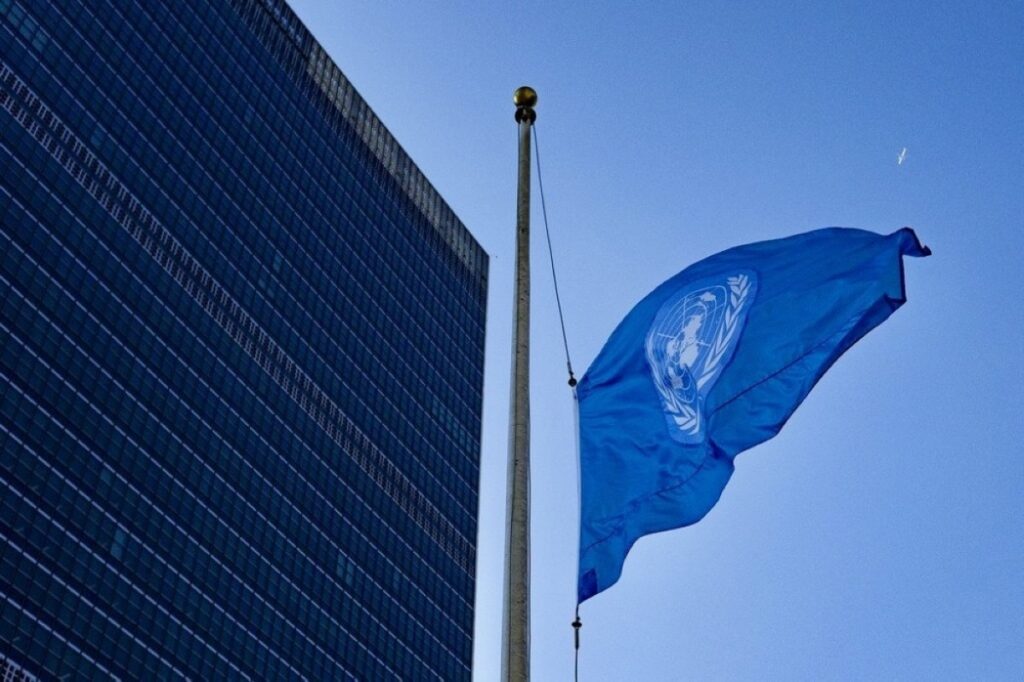Draft aims to strengthen cooperation on peacebuilding, conflict prevention and regional security
NEW YORK: The Gulf Group at the United Nations has introduced a groundbreaking draft resolution to the UN General Assembly, aimed at formalizing and deepening cooperation between the United Nations and the Gulf Cooperation Council (GCC). The move marks the first resolution of its kind and reflects the growing relevance of the GCC as a regional partner in promoting peace and stability. The resolution, formally titled “Cooperation between the United Nations and the Gulf Cooperation Council,” was submitted under agenda item 125 during the 79th session of the General Assembly. It was co-sponsored by GCC countries in addition to others including Jordan, Brazil, Kazakhstan, Philippines, and Singapore, among others.
In a speech delivered on behalf of the Gulf Group on Monday evening, Kuwait’s Permanent Representative to the UN, Ambassador Tareq Al-Bannai, emphasized that “this draft resolution not only commends the existing cooperation but also seeks to build a sustainable and systematic strategic partnership grounded in the shared principles between the UN and the GCC.”
What the resolution seeks
The draft resolution aims to establish a structured and long-term partnership between the United Nations and the Gulf Cooperation Council by enhancing coordination in areas critical to regional and international peace and security. It seeks to strengthen the GCC’s capacity in conflict prevention, mediation, early warning, crisis management, and post-conflict peacebuilding through joint training programs, technical assistance, and institutional support. The resolution also promotes regular high-level consultations and expert-level meetings between the two bodies to improve information-sharing, develop coordinated responses to emerging threats, and foster dialogue-driven solutions to regional crises. By formalizing these mechanisms, the resolution aspires to turn shared values into practical collaboration and to position the GCC as a proactive partner in the UN’s broader peace and development agenda. The resolution requested that the UN Secretary-General submit a report at its 80th session on the implementation of the resolution—a move described by Al-Bannai as one that “reflects the seriousness and practicality of advancing this institutional partnership.”
Why it matters
The draft resolution builds on long-standing principles in the UN Charter and previous Security Council Resolutions (1631 and 2167), which highlight the essential role of regional organizations in maintaining international peace and security. It aligns with recent global policy frameworks which reaffirm the need for stronger regional-global partnerships to address complex, cross-border challenges. Ambassador Al-Bannai highlighted that this year marks the 44th anniversary of the GCC’s founding, and said it has proven to be “a cornerstone for stability and prosperity in our region,” as well as “a voice of wisdom and moderation, and a beacon of constructive dialogue in a region full of challenges and rapid transformations.”
Over the past 15 years, the GCC has evolved into a credible and capable force in international mediation, with its member states playing key roles in resolving some of the world’s most intractable conflicts. From facilitating the 2011 Darfur Peace Agreement and the 2020 US-Taliban deal to mediating ceasefires between Hamas and the Zionist entity and negotiating prisoner exchanges between Russia and Ukraine, Gulf states have proven their effectiveness as neutral intermediaries. What sets their approach apart is a combination of diplomatic flexibility, strategic neutrality, and economic leverage. Kuwait’s successful mediation of the 2017–2021 Gulf Crisis further cemented its role as a trusted regional broker. Countries like Qatar have maintained open channels with actors ranging from the Taleban to Western governments, allowing them to mediate where others cannot. Oman’s quiet diplomacy helped pave the way for talks on the Iran nuclear deal. These consistent efforts across the Middle East, Africa, Europe, and beyond have positioned the GCC as a growing diplomatic force—one that the UN can now engage through a more structured, institutional partnership as outlined in the draft resolution.
With a focus on building long-term peace infrastructure, the resolution marks a shift from ad hoc coordination to institutionalized, forward-looking partnership. It acknowledges the GCC’s growing role in conflict prevention and resolution in the region, while offering UN agencies and bodies a framework for engaging more systematically with Gulf states. “The project reflects a new chapter of joint cooperation,” Al-Bannai noted, pointing to shared values and aligned priorities between the two institutions.
The Gulf Group expressed hope that the draft will be adopted by consensus, sending a unified message about the international community’s commitment to regional partnerships. As Al-Bannai concluded, the group remains committed to doing “all that is necessary to enhance strategic cooperation with regional and international organizations and to realize the noble objectives we all aspire to.” — Agencies

